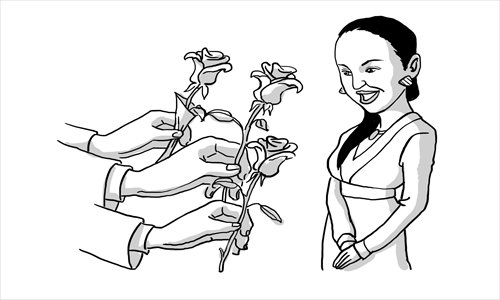Room for both Japan and China to do business in Myanmar

It was quite a surprise that the first trip of the newly elected Japanese government was by Deputy Prime Minister and Finance Minister Taro Aso to Myanmar. While Myanmar has, since the start of its reform process, been receiving the high and mighty from around the world, the new Japanese government clearly wanted to make a statement.
Historically speaking, Japan and Myanmar have had a difficult relationship.
The Japanese invasion during World War II made Myanmar a war-ravaged colony in Japan's empire. In the post-war years, Japan's relationship with Myanmar improved, with Myanmese government officials being trained by Japanese army officers and civilians.
Huge overseas development aid (ODA) cemented the relationship. These payments had started as war reparations in the 1950s, but in the 1960s became loans and grants for economic assistance. In the decade between 1977 and 1988, Japan gave around $3.71 billion in assistance.
However, with the advent of the State Law and Order Restoration Council, Japan suspended its ODA. The world had changed, and governments who supported military dictatorships faced international criticism. Japan became one of the only Asian countries which heeded the Western sanctions regime, but without suspending aid or the Japan International Cooperation Agency (JICA)'s involvement completely.
The relationship remained lukewarm, and Japanese companies stayed away while Chinese and other Southeast and East Asian firms poured in to take advantage of Myanmar's new open-door policy.
Since Myanmar embarked on the reform process just 18 months ago, Japan has been watching closely. Japanese companies were keen to reenter the new market and compete with the other, already established Asian firms from China, ASEAN and South Korea.
At a government level, Tokyo was the first to hold debt forgiveness talks with Nay Pyi Taw. In addition, Tokyo has started to offer fresh loans of around $600 million.
Japan's focus on Myanmar has been explained as a revival of the 1977 Fukuda doctrine, where Japan rejected its role as a military power, promoted mutual confidence, mutual trust, and a partnership with ASEAN to build a prosperous Southeast Asia.
Today, Japan clearly wants a stronger economic presence in Southeast Asia, and Myanmar is an opening market for its industries. This requires a strategic policy with regard to ASEAN countries.
Clearly, Japanese companies are at the forefront of pushing for a closer reengagement between Japan and Myanmar.
On the ground, this means the development of the 2,400-hectare Thilawa Special Economic Zone near Rangoon which includes a port and an industrial park.
Thilawa is being largely financed by a consortium of Japanese companies including Mitsubishi Corporation, Sumitomo Corporation and Marubeni Corporation and should be completed in 2015.
One of Myanmar's greatest needs is a modern banking system. JICA is currently playing the role of middleman in seeking Japanese companies to work with the Central Bank of Myanmar, and assisting the bank to develop a cloud system.
Aside from economics, Japan has also become involved in Myanmar's peace process through Japan's Nippon Foundation (NF), which was allowed to deliver $64,000 of aid directly to internally displaced persons, including rice and medicines.
It seems that a budget of $3 million has been allocated to support NF's humanitarian assistance. This is an interesting development, taking Japan's influence beyond the purely economic.
Many analysts are crediting Japan's increased involvement with wanting to reduce China's involvement in Myanmar. While certain elements in the new Japanese government might seem to fit that bill, such an explanation would be grossly oversimplifying Japan's relationship with Myanmar.
Japan sees Myanmar as a country where, despite the risks, there are huge profits to be made. Given Japan's stagnating economy, the search for new markets is a clear driver in Tokyo's moves. Japan also builds on decades-old ties of the post-war years, when the elites of both countries were close.
Given, however, that China has a 20-year head start, it is unlikely that Japan would see its role as one that would reduce China's influence. Simply speaking, there is enough space for both in Myanmar.
The author is a South Asia expert with the Yangon-based Myanmar Egress, a non-profit organization founded by Myanmar scholars and social workers. opinion@globaltimes.com.cn